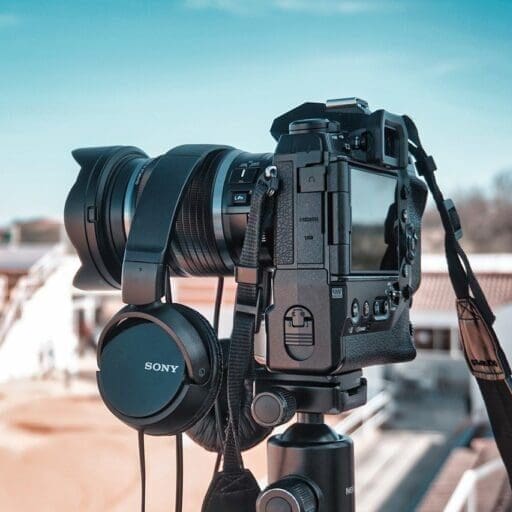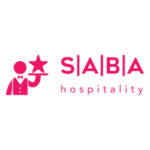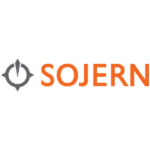 One surefire way to improve any hotel’s bottom line is to increase direct bookings – any booking that comes directly to the hotel via its website, email/phone call or walk-in. The benefits of direct bookings are twofold: first, you avoid commission or other fees charged by OTAs (online travel agents) or agents, and second, direct bookings increase your hotel’s ability to connect and communicate with your guests and develop a relationship with them.
One surefire way to improve any hotel’s bottom line is to increase direct bookings – any booking that comes directly to the hotel via its website, email/phone call or walk-in. The benefits of direct bookings are twofold: first, you avoid commission or other fees charged by OTAs (online travel agents) or agents, and second, direct bookings increase your hotel’s ability to connect and communicate with your guests and develop a relationship with them.
So how do you drive direct bookings? One key way is by ensuring that your website appears as close to the top of the list when a potential guest does a Google search that indicates interest in your hotel or area – and you do that by engaging in search engine optimisation (SEO). SEO refers to the efforts or processes undertaken to increase a website’s chance of being found on a search engine’s results page (SERP). Engaging in an SEO strategy may seem daunting, and yes, there are entire job roles dedicated to this subject, however, there are a few simple best practices which you can implement right now.
We have broken these down into the top priorities for optimising your website from a technical perspective, optimising your website’s content, and optimising your presence in local search.
Technical tips for your website’s inner workings
Often when we think of the perfect website we focus on the aesthetics, inviting pictures, well-written copy and virtual walkthroughs or the ‘front-end’ of the site. While all of those are extremely important and we can’t discount the value of an attractive website – functionality or ‘the back-end’ should be just as high up on your list of priorities when analysing your web pages from an SEO perspective.
So how can you optimise your website for SEO?
1. Create descriptive and concise URLs
Website page URLs need to be clear, descriptive and keyword rich. For example, the below URL shows a clear description of the content, separated by hyphens, and contains keywords such as “hoteliers” and “Google Maps”:
The portion of the URL after your domain name (which usually ends in .com, .co.uk, .net and so on) will be unique to each page on your website. Make sure that this helps people and search engines understand what the content on this page is about.
2. Make good use of metadata (title, meta description, image alt tags, etc.)
Although you don’t see the page title and meta description when viewing a webpage, these are what users will see on the search results page, so they should entice potential guests to click on your URL. Google Search Central describes the meta description as a “relevant summary of what a particular page is about. They are like a pitch that convinces the user that the page is exactly what they’re looking for.” Make sure that your homepage title and meta description, for example, concisely summarise your hotel and its offerings.
Alt text is another type of content you don’t usually see when viewing a web page, but which will affect your SEO. Alt text is a written description of what an image contains. The benefits of alt text can be far-reaching, firstly it allows Google bots to identify what the image is therefore assisting its understanding of the page in general. Alt text is also shown if the image can’t be displayed, and it will be read out by screen readers.
3. Improve your site’s speed and functionality (especially on mobile)
There have been multiple studies and research papers completed on the subject, and the figures are indicating billions of pounds in revenue are lost due to mobile site abandonment in particular.
When it comes to speed and functionality both mobile and desktop are important, however, Statista’s findings of mobile devices accounting for 59.16% of global search traffic, show us that optimising for mobile needs to be top of mind. Furthermore, other statistics show that “94% of leisure travellers switch between mobile and desktop devices as they plan and book their holidays” so for the hospitality industry both mobile and desktop functionality need to be addressed
4. Reduce page loading time
According to Google, bounce rate (people leaving your site quickly) increases by 90% if your site takes longer than 5 seconds to load on mobile devices. This could be a huge loss of direct bookings and therefore directly affect your hotel’s bottom line. Sometimes less is more, especially when it comes to mobile sites, having large images, videos to download or overly complicated designs including pop-ups and flashing images or carousels can not only slow down the speed of the site but can also deter users from looking any further. Google have a great tool called Page Speed Insights allowing users to find out how well their website works across mobile and desktop devices. To reiterate, according to Neil Patel “A 1-second delay in your site speed can result in a 7% reduction in conversions.”
Tips to improve loading time:
Images and video content are the biggest culprits in loading time, therefore if we want to address this we need to ensure that the images and videos are condensed appropriately and optimised for mobile and desktop and perhaps certain visual content is omitted from the mobile site altogether. Rather choose to display the most important images only and rather simplify the site. Other factors include reducing pop-ups, carousel images or other moving parts.
-
Ensure site features are simple to use
Functionality is ranked high on potential guests’ requirements for mobile sites. It’s frustrating having to use a complicated site with our large fingers on a tiny screen. Ideally, guests want a quick and easy path to purchase. Functionality and an easy-to-follow path to purchase should be addressed with the desktop sites as well.
Tips to improve functionality and user experience:
Direct the potential guests simply through a path to purchase, with clear and attractive CTA’s. You can also include a click-to-call ( or click-to-message) button making it easy for the guest to contact your hotel. Keep your menus short, sweet and easy to navigate with links being ‘larger’ finger friendly. One could also include a visual booking calendar for guests to book rooms and see availability. Lastly, use existing information to maximise convenience. For example, auto-fill forms for returning users.
-
Make sure your website layout is responsive
One of the biggest gripes that mobile users have for undesirable mobile sites is hard-to-read text or poor layout design.
Your website’s design should be highly responsive, in order to adjust the content for multiple device screen sizes. Images and text size should be optimised for any device or screen size to enhance load speed and as well as user satisfaction. The layout should adapt to fit smaller screens, and not require the user to scroll left and right to be able to view the full content, for example.
The copy on your site should also be short and to the point, the name of your hotel should be big and bold, with a clear and concise description of the property as a whole as well as each of the room types. According to Neil Patel,” You have 0-8 seconds to make a compelling headline and landing page. After 8 seconds, the majority of visitors leave.”
It’s also advisable to include a calendar on the site as a visual representation of availability and for ease of use for someone wanting to book directly with you, which again is your ultimate goal – to increase direct bookings.
Content tips for humans and bots
You will often hear SEO professionals say “Content is king”, and with good reason. Content comes in all shapes and forms; video, text and images as well as website copy, blogs, newsletters, articles, press releases or features embedded into the site such as videos or social plugins that regularly update.
Content generation has two major advantages, firstly potential guests may be searching for other information about an area where they would like to travel to, they may conduct a Google search for the best time of the year to travel to Bali, for example.
If your blog, article, infographic or image pops up on their search, there is a high chance they will digest your content and, if it’s informative and interesting, it can result in them engaging further with your site and will hopefully lead to a direct booking. Aside from the human benefits of engaging and informative content, search engines are always revising their listings in an attempt to ensure that they are showing the best possible results for any search.
The more links there are from around the web to your content, the better your standing will be with the search engines’ algorithms. They are looking for authority when it comes to results listing and if your content is relevant and authoritative (as indicated by the fact that similar sites have linked or reshared it) then you are well on your way to getting a highly-ranked listing.
Include your target keywords
When writing content, website copy and choosing titles, descriptions and metadata you should aim to include your target keywords (or close variations thereof). However, while including keywords is important for SEO strategy your content should still be written naturally, for human beings not just bots, especially because many search engines are on the lookout for and will penalise you for ‘keyword stuffing.’
According to SEO experts at Backlinko, content should be engaging and informative for potential guests but also keyword rich for search engine bots. Sites should make use of both standard keywords, which describe in one or two words the basic services you provide. However, due to the huge amount of competition in popular searches, it is advisable to back these up with more detailed or specific long-tail keywords. If you need help Google has developed a Keyword Planner to make sure you are getting the right keywords for your website. Ubersuggest also has a useful tool which can be used to identify what keywords your competitors may be using. Ultimately you want to identify a keyword list for your hotel’s website and then isolate a target keyword for each individual piece of content.
Create excellent content
-
Content should be informative
Again the benefits of having relevant and informative content are two-fold, one they tell Google you are an authority on a certain topic such as the tourist attractions in your area thus leading to a higher ranking on SERPs. Second, they answer guests’ questions ahead of time, leading to relationship-building and trust-generating opportunities. Often when guests are looking for their next trip, be it business or leisure they will have certain questions regarding the location, activities or attractions in the area. If they find your content helpful and easy to use, chances are they will look further for more content on your site.
-
Content should be eye-catching and structured
Potential guests want to immerse themselves in your hotel’s world. They want to read about the ‘10 outdoor activities to do in Lagos’ and they want to see the beauty of the Amazon forests in pictures or take a virtual tour of the top attractions within walking distance from your hotel’s doors. Content needs to be interesting at a glance, including pictures of beautiful scenery, fascinating sites and bustling cities, but it is not enough to merely have styled professional images on your social media or website. Guests want to be able to relate to the content as well, storytelling marketing has increased in popularity as has behind-the-scenes images or footage. You chef cooking his signature dish in the kitchen or the housekeepers doing the final touches of a perfect turndown, for example.
Video content is also on the rise, according to a Wyzowl study, ‘88% of people say that they’ve been convinced to buy a product or service by watching a brand’s video.’ Social media users are also more likely to share video content. From the same study, it was identified that ‘People are twice as likely to share video content with their friends than any other type of content, including social media posts, blog posts/articles and product pages.’
-
Create and update content often
The frequency of content creation and sharing is also important, often when being ranked as a site, the bots will look at the recency of content and not only the quality of content. However, this is a little more complex than continuously creating new content. According to Search Engine Journal, Google has various ways of determining the relevancy of content which comes from both the recency ie. trending news articles but also the quality of the content ie. timeless in-depth looks at certain fields from multiple experts. SEJ states “Google uses Query Deserves Freshness (QDF) to decide when to serve users new information and when not to.”
-
Include a well-thought-out CTA
While you should be aiming to create content for potential guests’ enjoyment or education, as marketers, you’re are also looking to direct your potential guests to complete bookings. Therefore, content needs to include a Call To Action (CTA). These CTAs can be in the form of a button, link or pop-up. CTAs need to be well thought out – where do you want to direct each target segment, and why? Potential guests need to value the content enough and be enticed by the CTA presentation for you to have a chance they will click.
Remember CTAs are not only to get someone to “BOOK NOW” or “STAY WITH US” sometimes the CTAs can encourage them to read another article on a similar subject or to watch a video explanation. The longer you can retain the potential guests’ interest the stronger your brand awareness for that guest becomes and ultimately generates trust.
Enhance your E-A-T ( Expertise, authoritativeness and trustworthiness)
E-A-T referring to expertise, authoritativeness and trustworthiness is a guideline created by Google to attempt to ensure the information disseminated from the search engine is, as far as possible, the most accurate. Google search evaluators (who help to train Google’s ranking algorithms) were asked to focus on some key areas; the expertise of the creator of the content, the authoritativeness and trustworthiness of the creator, the content and the website it is created for. Sometimes when looking at the authority for your blogs, articles or other content we miss out on one key element – author biographies. The author bios, according to Moz.com, should highlight the years of experience, education level and previous experience to enhance your credibility with Google and potential guests or website visitors. Your “About Us” page which has a similar function – letting Google and your readers know how credible you are as a source of information on a particular topic. With all of that being said, E-A-T is much more important for some industries than others, but nevertheless, its a good idea to keep reminding Google and your potential guests why they can trust you.
Local SEO and Google tips
Google has undergone many changes over the years, regularly introducing new ways to find and sort information for the searcher or potential guest. Google’s new tools make it astoundingly easy to search for exactly what you want, in the location you are in, plus provide you with other guest reviews for each listing. With so many potential guests making use of these tools, you don’t want to get left behind.
Local SEO for hotels is especially important, it means that guests in the area will see your site when using “near me” or “in my area” search functions, such as “hotels near me” and “places to stay near me”. The very first step in achieving optimum local SEO is by furnishing your website with the most basic information such as business name, address and phone number, or NAP (Name, Address, Phone number) details. While it seems obvious, occasionally the business details differ across various sites or OTA citations. Generally, this is frowned upon from a search engine perspective, so conduct a quick audit of your various listings and double-check that all of the citations are saying the same thing, this can lend clout to your SERP rankings, indicate your business is established and reliable, and help guests to discover you.
Local SEO has similar ranking criteria just as any other search topic would; however, Google starts to analyse hotels in the area based on their NAP congruence, use of Google my Business, and target keywords used in Google tools. The presence and rating of Google Reviews, shares, check-ins and tagged images on social media or other sites and lastly your Google Maps rating.
Gearing up to reap local SEO benefits requires the correct application of some of Google’s free tools:
-
Make the most of Google Maps & Map Packs
Another important tool in our kit should include a Google Map’s listing. Google Maps feeds directly into Google’s “Map Pack” which is a list of the top 3 local businesses in the area satisfying the guest’s search criteria and includes a Google Maps location as the first image you see, followed by the regular text list of available companies serving the same purpose. These Map Pack listings can also offer information such as operating hours, contact information and a star rating based on guest reviews. It would be advisable to track your ranking on Map Pack searches, however, it becomes fairly complicated because of each location that a searcher could be looking from, for example in highly populated areas searching for a restaurant from one street to another will pull up a different top three Map Pack recommendations. Therefore using a tool such as Local Falcon can help you to gather quality data on your SEO strategy implementation.
-
Ensure you have a Google My Business profile
Creating an accurate and detailed Google My Business listing should be the top priority for any hotel, big or small. Not only will a quality listing lead to direct bookings through Google local searches and Google my business hotel listings, but it also bumps up your search engine rankings overall. It is the top criterion for a Google Map Pack listing, making up 25.12% of the overall ranking factors for Map Packs. Some of the best practice tips include; optimising your description for your specific location, geo-tag photos, utilise the special offers function, ensure you have a click-to-call setting as well as a click-to-message – not all guests want to call but often they will want to send a message. Lastly, it is important to try and maximise your reviews, just like Tripadvisor, having recent reviews can work in your SEO favour.
-
But watch out for Google updates
Google regularly conducts algorithm updates which dictate how various sites are ranked. This is to ensure that the end users or your potential guests are receiving the most accurate and helpful information when they type anything into the search engine. However, these updates can sometimes affect your hotel’s website ranking. While we can’t control what updates Google makes and what influence it has on our site, we can stay up to date with the occurrences of such updates. Ultimately continuing with efficient and regular SEO work should ensure that you travel back up to the top of the search pages, but if you have been pushed down by a few rungs, remember so have many others and it’s alright – just keep working at it.
Increasing website traffic through SEO strategy can go a long way to increasing your hotel’s direct bookings and therefore bottom line. You want to ensure that your site features high up on any results page, but even more importantly we want to list high up on the Google Map Pack pages to try and attract any wandering travellers. If all goes well, you want your site to be the authority on travel-related queries in your area.





















